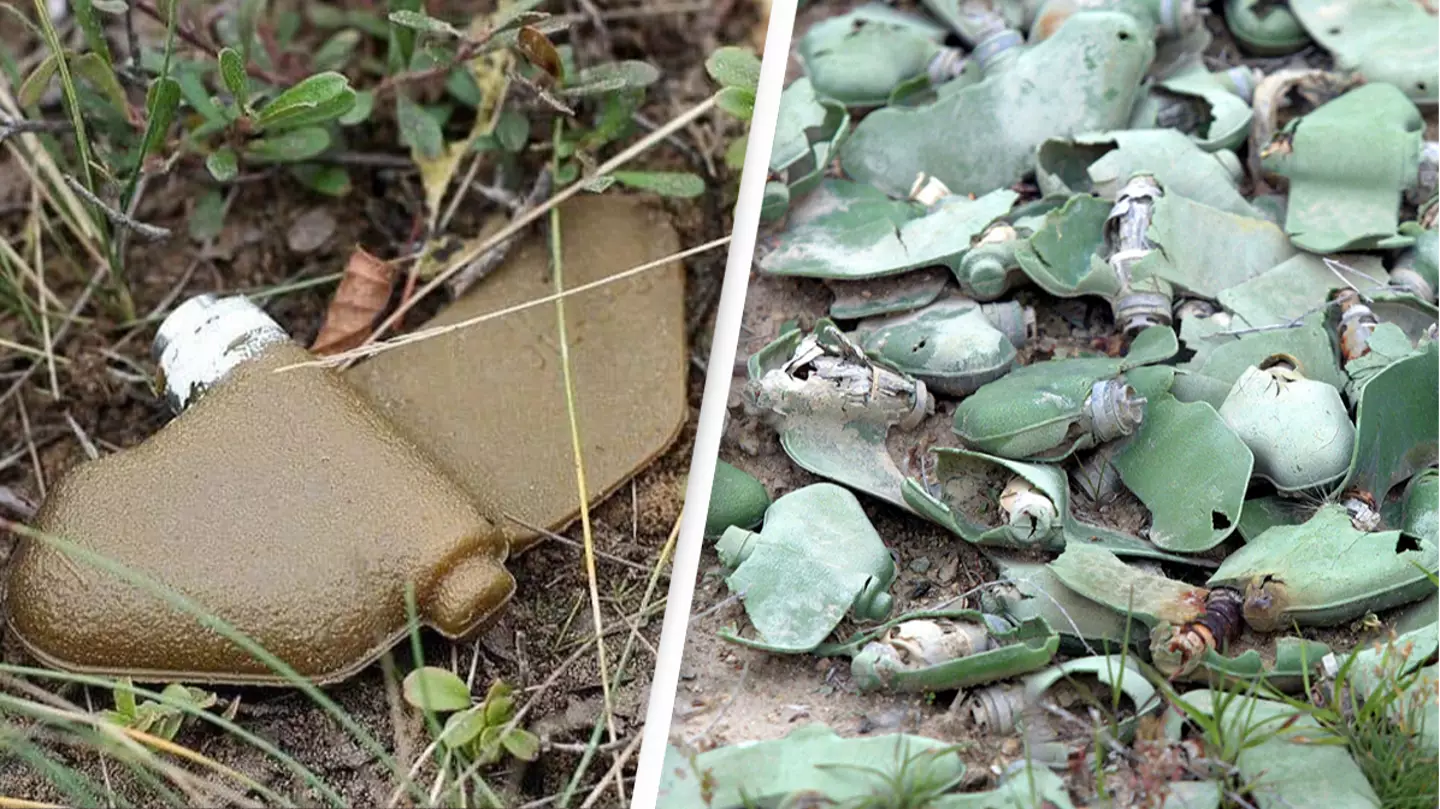
A former war correspondent has shared chilling insight to the so-called 'butterfly' mines reportedly being used by Russian troops in Ukraine.
After Vladimir Putin sent Russian forces across the border on February 24, Prosecutor General Iryna Venediktova shared the news that Ukrainian troops had found the anti-personnel mines in the Kharkiv region; home to Ukraine's second-biggest city.
The mines, also known as PFM-1s or Lepestok mines, are prohibited by the Geneva Convention.
Posting on Facebook, Venediktova warned that the mines were being dropped in 'cluster bombs', and said that while the colour of the explosives may vary, they are about the size of a finger and have the ability to blow a leg off it they are stepped on.
The General Staff confirmed the information, according to both EuroMaidenPress and Ukrainska Pravda, despite the fact the mines have been banned by the Geneva Convention.
Advert
In the wake of the news, former war correspondent Dean Gloster took to Twitter to share some comments about the butterfly mines, based on his own experiences.
He said: 'About the butterfly mines the Russians dropped outside Mariupol to kill and injure fleeing civilians. A thread. Once in 1986 in Peshawar, near the border of Afghanistan, when I was an alleged freelance journalist, a guy tossed a (deactivated) butterfly mine at my chest.'
Gloster explained he did not reach to grab the mine after having been warned 'by no fewer than three people' that he could expect one to be thrown at him in greeting, and said that even though the explosive had been removed from the mine, he still feared having his finger blown off by the igniter.
Having had a mine bounce off his chest, Gloster said he is 'familiar with Russian butterfly mines', and described them as 'toe poppers' which are designed to 'maim' their victim by 'blowing off a leg or an arm' instead of killing.
The reason for this, Gloster claimed, is because 'a wounded colleague slows people down more than a dead one'.
When it comes to the mines being dropped by Russia from aircraft, Gloster described how they 'disperse' as they flutter to the ground and prove 'particularly interesting to children, because they resemble plastic toys'.
He went on to describe the mines being dropped by Russians in Ukraine as a 'deliberate maiming of children'; a thought which is 'horrific and unconscionable'.
While warning of the mines, Venediktova said they have previously had devastating effects, causing death and suffering, when used in various armed conflicts of the 20th century.
If you would like to donate to the Red Cross Emergency Appeal, which will help provide food, medicines and basic medical supplies, shelter and water to those in Ukraine, click here for more information